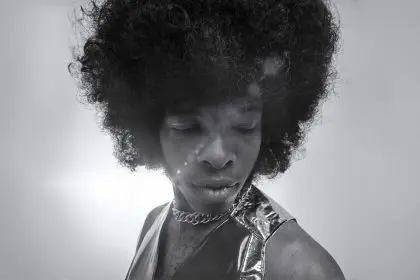Funk pioneer who revolutionized music with Family Stone passes away in Los Angeles
The music world lost one of its most revolutionary figures Monday when Sly Stone, the visionary architect of funk and the driving force behind the groundbreaking band Sly and the Family Stone, died in Los Angeles at age 82. His death marked the end of an era for an artist who fundamentally transformed popular music, bridging racial and musical divides with an unprecedented fusion of soul, rock, and psychedelic experimentation.
Stone’s representatives confirmed his passing resulted from complications related to chronic obstructive pulmonary disease and other health complications that had plagued the musician in recent years. The news sent shockwaves through the music community, where Stone’s influence had spread across generations of artists and continues to reverberate through contemporary sounds.
The architect of revolutionary sound
Born Sylvester Stewart in Denton, Texas, before relocating to San Francisco’s Bay Area, Stone emerged as a musical force unlike anything the industry had witnessed. His approach to music-making represented a radical departure from traditional R&B and soul conventions, incorporating elements that would later define funk as a distinct genre. The multiracial, mixed-gender composition of his band was itself a political statement during the turbulent social climate of the late 1960s.
Stone’s genius lay in his ability to craft songs that functioned simultaneously as irresistible dance floor anthems and profound social commentary. Tracks like Everyday People and Dance to the Music weren’t merely hits – they were cultural manifestos wrapped in infectious grooves that made their messages impossible to ignore. His music captured the zeitgeist of civil rights struggles while maintaining an optimistic, celebratory energy that transcended racial boundaries.
The Family Stone’s sound was characterized by Stone’s meticulous attention to rhythmic complexity and his innovative use of studio technology. He pioneered production techniques that layered multiple instruments and voices in ways that created dense, psychedelic soundscapes. These arrangements influenced countless musicians and producers who followed, establishing templates that remain relevant in contemporary music production. His catalog of revolutionary tracks including Everyday People, Dance to the Music, and the introspective Family Affair showcased his range from uplifting social anthems to deeply personal explorations of human relationships.
Cultural impact beyond the charts
Stone’s artistic vision extended far beyond commercial success, though the band certainly achieved that in abundance. Their string of hits throughout the late 1960s and early 1970s dominated radio airwaves and established new benchmarks for what popular music could accomplish both sonically and socially. Songs like Hot Fun in the Summertime, I Want to Take You Higher, Thank You (Falettinme Be Mice Elf Agin), and Family Affair became generational anthems that defined the era’s spirit of rebellion and hope.
The band’s live performances were legendary spectacles that showcased Stone’s charismatic stage presence and the group’s tight musical chemistry. Their appearance at Woodstock in 1969 is often cited as one of the festival’s most electrifying moments, introducing their unique sound to hundreds of thousands of attendees and millions more through subsequent recordings and documentaries.
Stone’s influence on subsequent generations of musicians cannot be overstated. Artists ranging from George Clinton and Parliament-Funkadelic to Prince, Michael Jackson, and the Red Hot Chili Peppers have acknowledged his profound impact on their work. Jazz legends like Miles Davis and Herbie Hancock incorporated elements of Stone’s funk innovations into their own experimental phases, demonstrating the cross-genre appeal of his musical concepts.
The genius and the struggle
Despite his monumental achievements, Stone’s career was marked by periods of creative turbulence and personal challenges that often overshadowed his artistic contributions. His perfectionist approach to recording sometimes resulted in delayed releases and mounting tensions within the band. The pressures of fame, combined with the era’s prevalent drug culture, contributed to creative inconsistencies that frustrated fans and industry executives alike.
Stone’s later career was characterized by sporadic releases and limited public appearances, leading to speculation about his artistic motivations and personal well-being. However, his influence on emerging musical styles never waned, with hip-hop producers frequently sampling his work and contemporary R&B artists citing him as a primary inspiration.
The musician’s reclusive nature in later decades only added to his mystique, transforming him into something of a legendary figure whose past achievements seemed to grow more impressive with time. His absence from the public eye allowed his music to speak for itself, with new generations discovering the revolutionary nature of his artistic vision through reissues and documentary films.
Renaissance and recognition
Recent years witnessed a remarkable renaissance in Stone’s public profile, largely driven by music historian and drummer Questlove’s passionate advocacy for his legacy. The Academy Award-winning documentary Summer of Soul featured stunning footage of Sly and the Family Stone’s performance at the 1969 Harlem Cultural Festival, reintroducing their explosive live energy to contemporary audiences.
This renewed attention culminated in Stone’s 2023 memoir, which provided unprecedented insights into his creative process and personal journey. The autobiography offered fans and scholars alike a deeper understanding of the man behind the revolutionary music, revealing the complexities and contradictions that fueled his artistic vision.
Questlove’s subsequent documentary focused on Stone’s lasting impact on popular culture while exploring the broader implications of his artistic innovations. These projects collectively established Stone’s rightful place in the pantheon of American musical pioneers, ensuring his contributions would be properly understood and celebrated by future generations.
Enduring legacy
Stone’s death represents the loss of a true musical innovator whose influence extends far beyond the funk genre he helped create. His approach to rhythm, melody, and social commentary established new possibilities for popular music, demonstrating how entertainment and activism could coexist within the same artistic framework.
The techniques he developed in the studio continue to influence modern production methods, while his band’s integrated lineup remains a model for musical collaboration across racial and gender lines. His songs maintain their power to move audiences both physically and emotionally, proving that great art transcends the circumstances of its creation.
As the music world mourns Stone’s passing, his revolutionary spirit lives on through the countless artists he inspired and the timeless recordings that captured his unique vision. His legacy serves as a reminder that music’s greatest power lies in its ability to unite people across all divides while speaking truth to power through irresistible grooves and unforgettable melodies.














